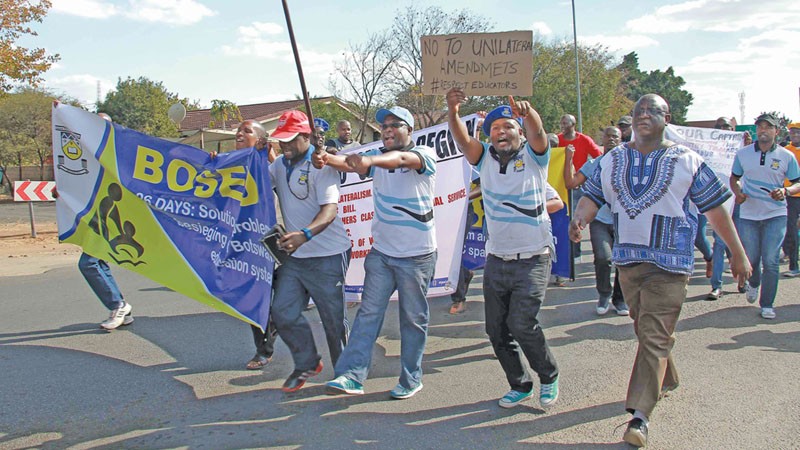BOSETU sues over scarce skills
Baboki Kayawe | Wednesday June 7, 2017 16:55


The case before Judge Godfrey Nthomiwa is about what the teacher union terms discrimination against their members whom they believe deserve to be paid scarce skills given that the many Business Studies and Accounting teachers employed in junior and secondary schools are foreign nationals.
This, the union argues, testifies to the fact that there is a shortage in the two fields. “We believe that scarcity is measured by shortage, hence we are asking that the employer classify these people as scarce and pay them accordingly,” BOSETU publicity secretary Edwin Maitshoko told Mmegi.
The union said that in November 2009, a review of the skills audit was conducted which resulted in the Directorate of Public Service Management (DPSM) directive dated November 30, 2009. It also covered holders of the AAT qualifications.
Later, in April 2013 another savingram was circulated to all ministries to pay diploma holders in accounting and business studies scarce skills allowance effective from April 1, 2013.
Employees holding diploma in accounting and business studies were erroneously omitted in the savingram of DPSM dated April 23, 2013.” The notice also indicated that on March 31, 2014, the then director of DPSM, Carter Morupisi issued a savingram authorising public service employees holding diploma in accounting and business studies to earn scarce skills allowance that effected on April 1, 2014.
On December 2, 2015 the director Ruth Maphorisa issued another circular savingram authorising employees holding degrees in accounting or related qualifications to be paid scarce skills allowance.
This resulted in school bursars getting the scarce skills allowance as well as initially they were left out while their counterparts under the Ministry of Finance and Development Planning were paid.
“Business Studies and Accounting teachers are qualified AAT, CIMA diploma and degree holders, hence the employer must pay teachers,” Maitshoko said.
Onalethata Kambai represents BOSETU in this case while the Attorney General’s Chambers represents the state.
